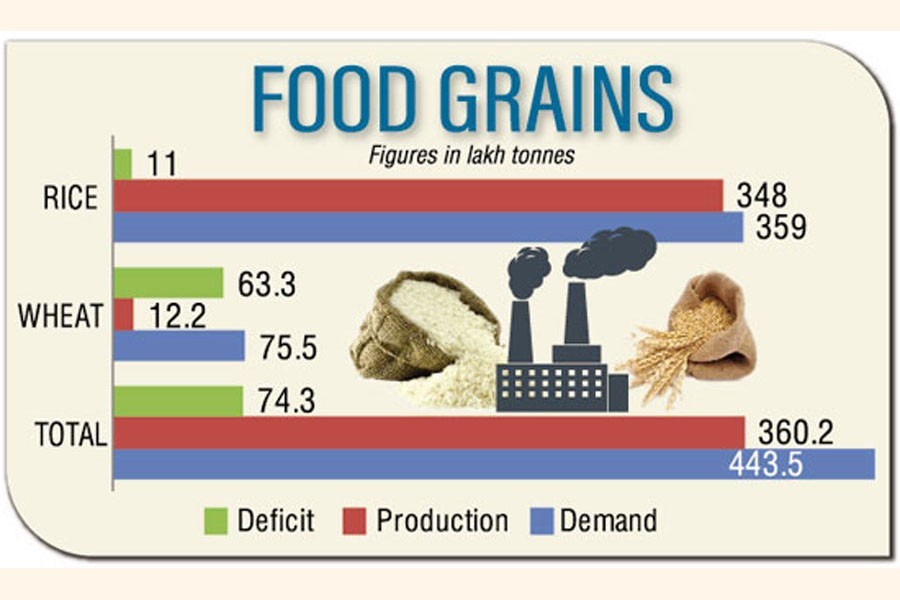Bangladesh Police, responsible for ensuring safety and security of the citizens, have moved into food security issues and recommended a number of measures, including taking stern actions against unscrupulous traders and hoarders.
The agency sent copies of a report recently to the commerce, agriculture, and food ministries via the Ministry of Home Affairs.
The report suggested taking proper steps for importing rice and wheat to tackle the possible food deficit in the country.
It also suggested that the authorities take recourse to the relevant procedures to deal with unscrupulous traders, manipulators and hoarders.
Besides, the agency recommended holding an inter-ministerial meeting to make appropriate plans taking into consideration the situation on the ground.
The report said farmers were reluctant to sell their produce during the government's procurement drive since the prices offered are lower than that in the market.
Taking advantage of it, many manipulators and hoarders purchase the food grains in a huge quantity from the market with an aim to hoard.
These dishonest businessmen sell the stored grains at higher prices later on, making excessive profits.
For this, consumers have to spend more money for purchasing rice, the report said.
Negative impacts of Covid-19 exist all over the world, said the report, adding that the production activities across the globe had been hampered due to the virus.
As a result, the production of food grains has declined, read the report.
In this situation, Bangladesh might face problem in importing necessary food grains in time of need.
The report, however, emphasised taking suitable plans and maintaining necessary communication with the exporting countries so that Bangladesh can import food grains at the time of need.
It also recommended increasing the domestic stock of food grains through taking proper action.
Besides, during pandemic and post-pandemic time, an advance plan to import required grains should be taken to avoid food deficit in the country, said the report.
Public food grain stocks climbed to a 10-month high of 1.3-million tonnes last week, thanks to significant progress in domestic procurement and state imports.
But market experts said higher stocks, three-year high import and a likely record output in the just-ended Boro season could hardly put any impact on the galloping rice prices.
Prices of the staple continued to surge even during Boro harvest time, they observed.
Given the outgoing fiscal, the highest stock was recorded at 1.35-million tonnes at the end of August 2020 which fell to 1.26-million tonnes in September.
Of the current stock of 1.3-million tonnes, rice comprises nearly 1.0-million tonnes and wheat more than 0.3-million tonnes, according to the food ministry.
According to a food directorate official, domestic procurement is going on in full swing.
He said 0.822-million tonnes of grain out of the 1.9-million tonne procurement target were met until June 21.
Of the quantity, rice was nearly 0.51-million tonnes, paddy 0.217-million tonnes and wheat the rest 0.095-million tonnes, achieving above 43 per cent in the first two months of procurement.
Paddy procurement began on April 28 and rice on May 07.
The government has primarily decided to complete the grain purchase within August 31 next.
According to the agriculture ministry, rice production might be 20.5-million tonnes this Boro season.
The food directorate disclosed that Bangladesh so far imported 0.77-million tonnes of rice in the current fiscal year, of which 0.22-million tonnes were brought through the government channel.
The government has set a target to procure over 1.4 million tonnes of food grains, according to the report.


